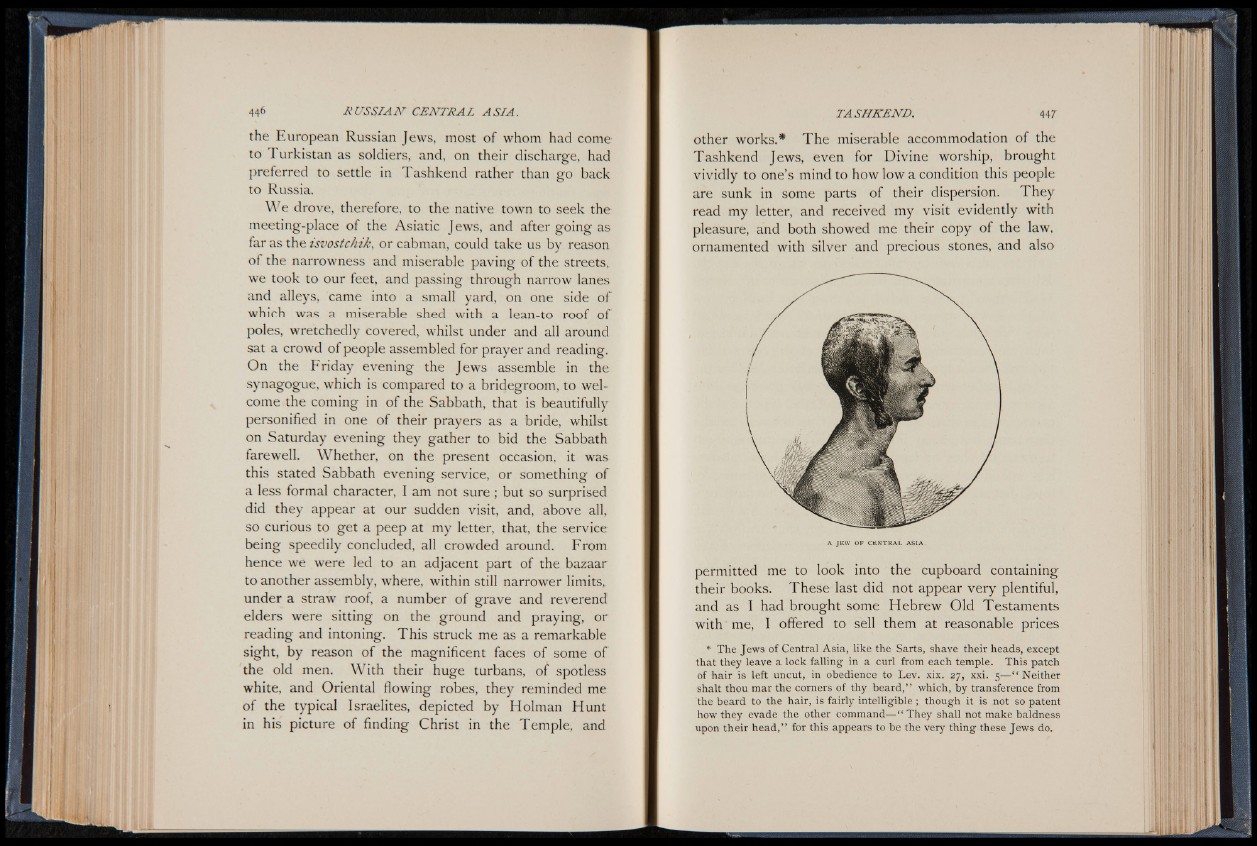
the European Russian Jews, most of whom had come
to Turkistan as soldiers, and, on their discharge, had
preferred to settle in Tashkend rather than go back
to Russia.
We drove, therefore, to the native town to seek the
meeting-place of the Asiatic Jews, and after going as
far as the isvostchik, or cabman, could take us by reason
of the narrowness and miserable paving of the streets,
we took to our feet, and passing through narrow lanes
and alleys, came into a small * yJard, on one side o f
which was a miserable shed with a lean-to roof o f
poles, wretchedly covered, whilst under and all around
sat a crowd of people assembled for prayer and reading.
On the Friday evening the Jews assemble in the
synagogue, which is compared to a bridegroom, to welcome
the coming in of the Sabbath, that is beautifully
personified in one of their prayers as a bride, whilst
on Saturday evening they gather to bid the Sabbath
farewell. Whether, on the present occasion, it was
this stated Sabbath evening service, or something o f
a less formal character, I am not sure ; but so surprised
did they appear at our sudden visit, and, above all,
so curious to get a peep at my letter, that, the service
being speedily concluded, all crowded around. From
hence we were led to an adjacent part of the bazaar
to another assembly, where, within still narrower limits,
under a straw roof, a number of grave and reverend
elders were sitting on the ground and praying, or
reading and intoning. This struck me as a remarkable
sight, by reason of the magnificent faces of some o f
the old men. With their huge turbans, of spotless
white, and Oriental flowing robes, they reminded me
of the typical Israelites, depicted by Holman Hunt
in his picture of finding Christ in the Temple, and
other works.* The miserable accommodation of the
Tashkend Jews, even for Divine worship, brought
vividly to one’s mind to how low a condition this people
are sunk in some parts of their dispersion. They
read my letter, and received my visit evidently with
pleasure, and both showed me their copy of the law,
ornamented with silver and precious stones, and also
permitted me to look into the cupboard containing
their books. These last did not appear very plentiful,
and as I had brought some Hebrew Old Testaments
with me, I offered to sell them at reasonable prices
* The Jews of Central Asia, like the Sarts, shave their heads, except
that they leave a lock falling in a curl from each temple. This patch
of hair is left uncut, in obedience to Lev. xix. 27, xxi. 5— “ Neither
shalt thou mar the comers of thy beard,” which, by transference from
the beard to the hair, is fairly in te lligib le ; though it is not so patent
how they evade the other command— “ They shall not make baldness
upon their head,” for this appears to be the very thing these Jews do.